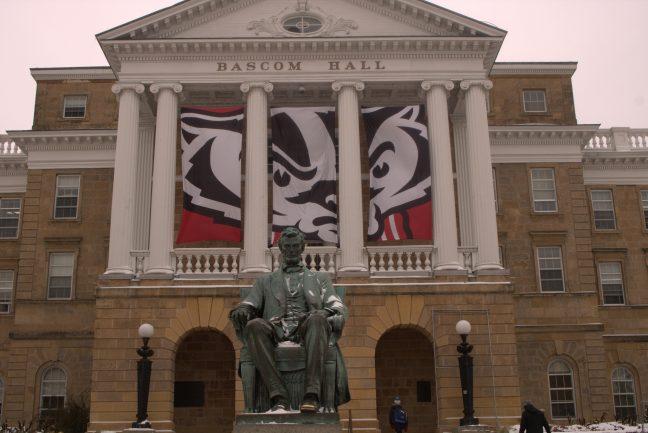The University of Wisconsin will no longer apply travel grants awarded to graduate students to outstanding segregated fees balances beginning this semester.
After graduate students reported having their travel grants applied towards segregated fees balances, travel grants will no longer be put towards tuition and segregated fees balances, University Relations Specialist Eric Hamilton said in an email.
Most forms of financial aid a graduate student receives are first applied towards any outstanding balances they may have through the university – a policy all students must agree to when they register, according to the Bursar’s office website.
Teaching Assistants Association member and counseling psychology doctoral student Anthony Flynn commented on the change in policy.
“I think it is a step in the right direction, and I largely attribute that to the effort of graduate students and their advocacy around this issue,” Flynn said. “I think that particularly it is a step towards folks not having to worry about not having enough funds to go to a conference.”
UW updates graduate student workplace policies for Research Assistants
Flynn said in order to opt out of having awards, grants and other forms of financial aid applied to their university balances, graduate students must fill out a form in person at the Bursar’s office every semester. Hamilton said students will no longer have to fill out the form to prevent travel grants from being applied to their segregated fees balance.
Hamilton said going forward, departments who are issuing travel grants should work with the Bursar’s office during the process to make sure the travel funds are marked correctly. Students were informed of the change in the GradConnections newsletter, and graduate programs and payment coordinators were alerted via email, Hamilton said.
“I would categorize the move away from travel garnishing to be a major win for folks,” Flynn said. “It’s necessary, but insufficient.”
Flynn said graduate students are asking for more clarity on which funds are eligible for the university to apply towards outstanding balances. While travel grants no longer fall under the category of funds able to be be used for segregated fees, Flynn said it was unclear to some students which financial awards the university would use.
This policy is referred to as “grant garnishment” by some graduate students, but UW Communications Director Meredith McGlone said in an email this is an incorrect name.
“‘Garnishment’ is not the correct term to describe this process – garnishment is when a court issues an order to collect money or property that is owed by a debtor,” McGlone said in the email.
Astronomy graduate student and TAA member Jacqueline Goldstein had money from an award applied towards segregated fees. Goldstein said six other students in the astronomy department reported having their grants applied towards unpaid balances.
Goldstein said money from awards and grants being applied directly to segregated fees instead of students using the money as they see fit can affect students in different ways. By not having access to their full grant awards, students may have to make tough financial decisions, she said.
“I feel fortunate that I haven’t had to make those choices, but I am very much aware that other people do,” Goldstein said. “I’m really interested in speaking out on behalf of folks who are more impacted.”
Flynn said student segregated fees are due April 3 for graduate students. Goldstein said this date is after students have received three paychecks from the university so it is easier to pay these mandatory fees.
McGlone said in the email that if students have questions or concerns about their scholarships, they should reach out to their Graduate Program Coordinator who can help to clear up confusion. Additionally, applying financial awards to segregated fees balances is commonly done at other institutions and is considered standard practice, McGlone said in the email.
Engineering graduate students push for departmental reform after student’s suicide
“I would hope going forward that any kind of policy changes or implementations that affected graduate students would involve graduate students at the table as stakeholders with the ability to have a say in the policies that govern us,” Goldstein said.
Flynn echoed this thought and hopes to engage with the administration to create a policy which would work well for students and the university. He said graduate students are hoping for transparency on what funds can and cannot be automatically applied to segregated fees and for an easier way to opt out than filling out forms every semester.
McGlone said students are able to talk to the Graduate School’s Graduate Student Advisory Board about their thoughts on this policy.
“One way to avoid having graduate students make a stink in your office is to engage with us as partners in terms of dictating these policies in the spirit of shared governance,” Flynn said.

















